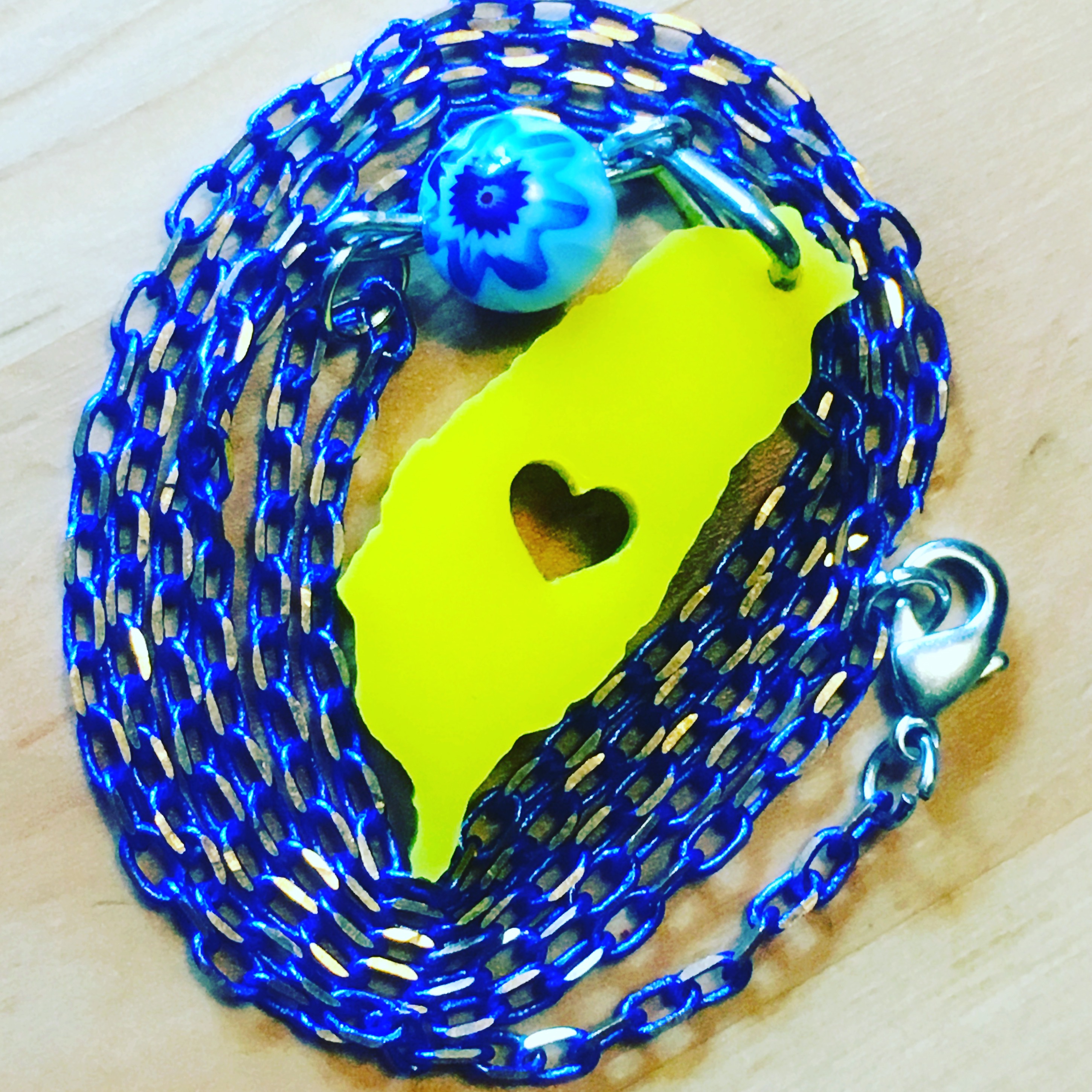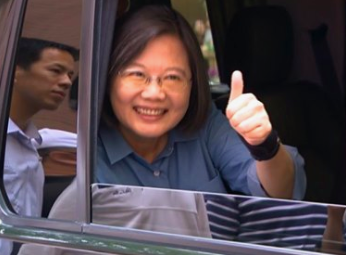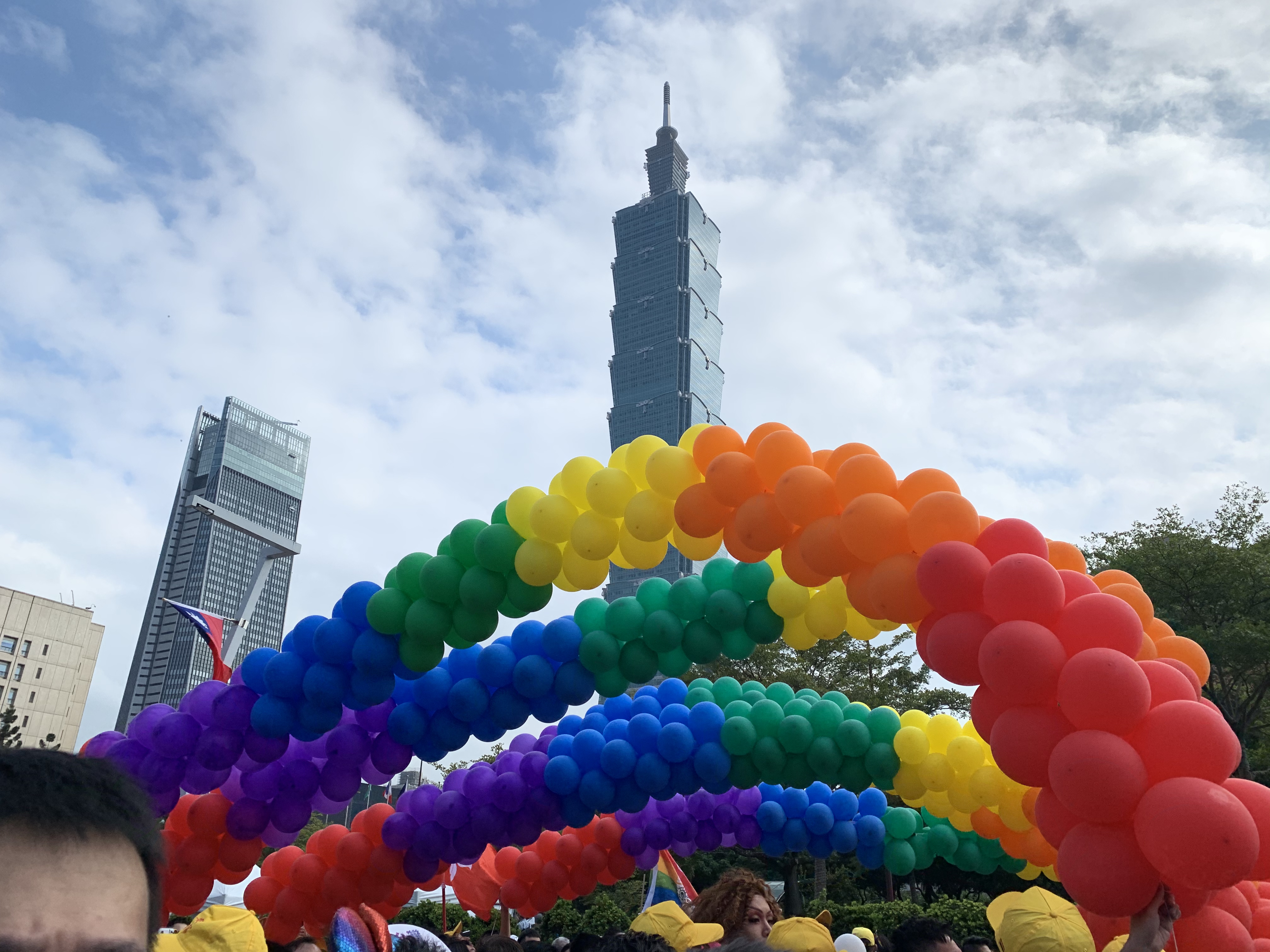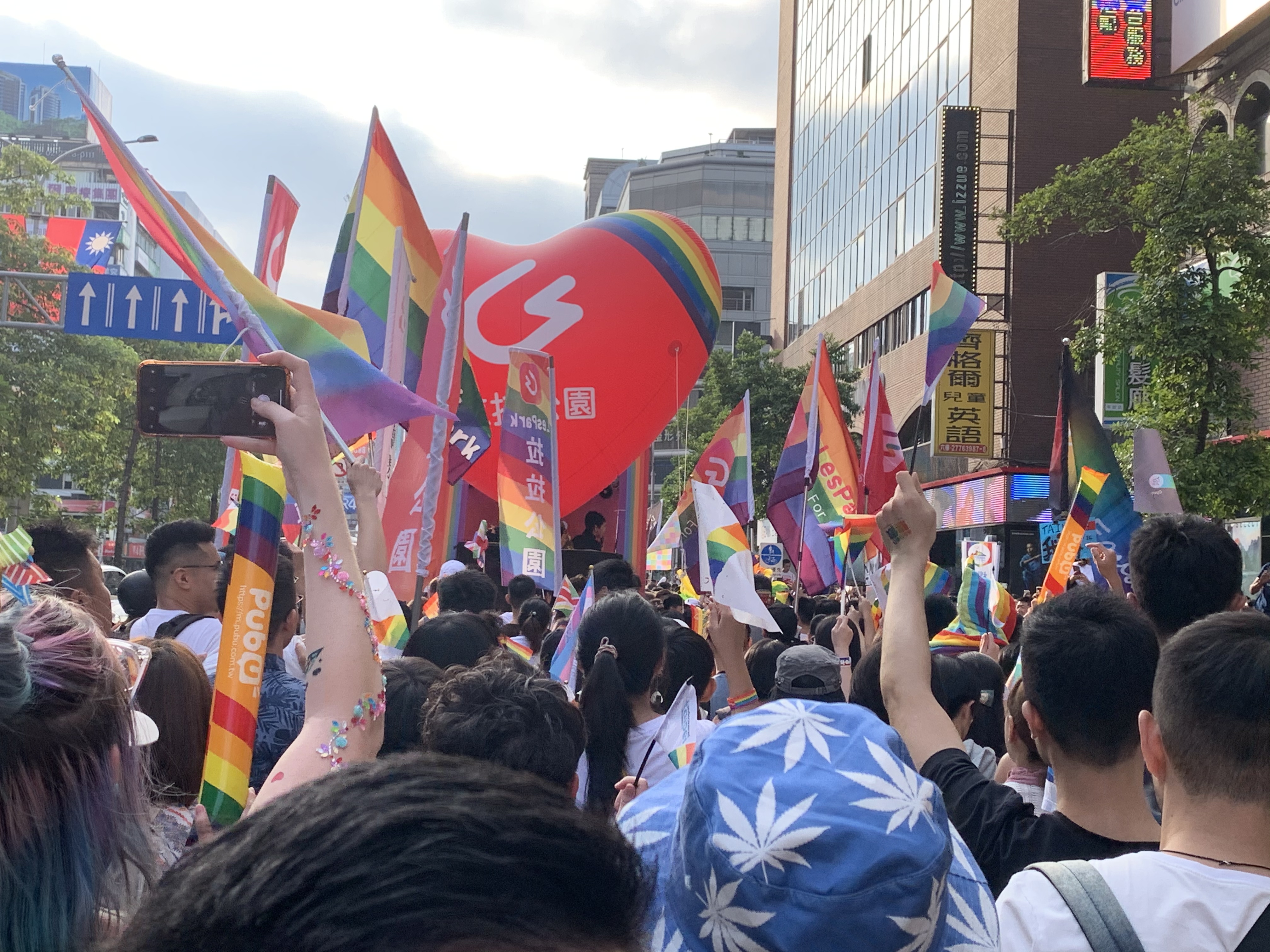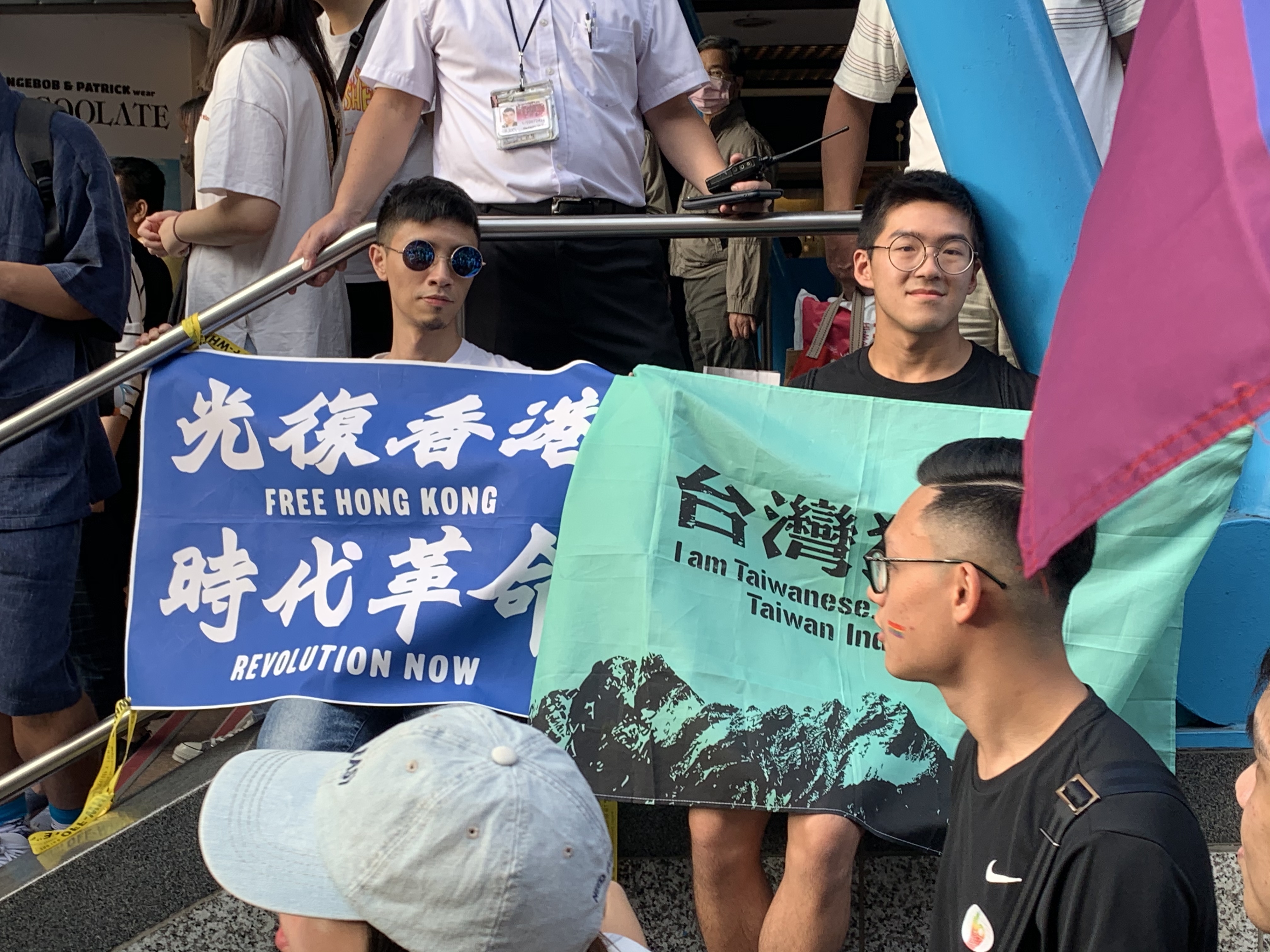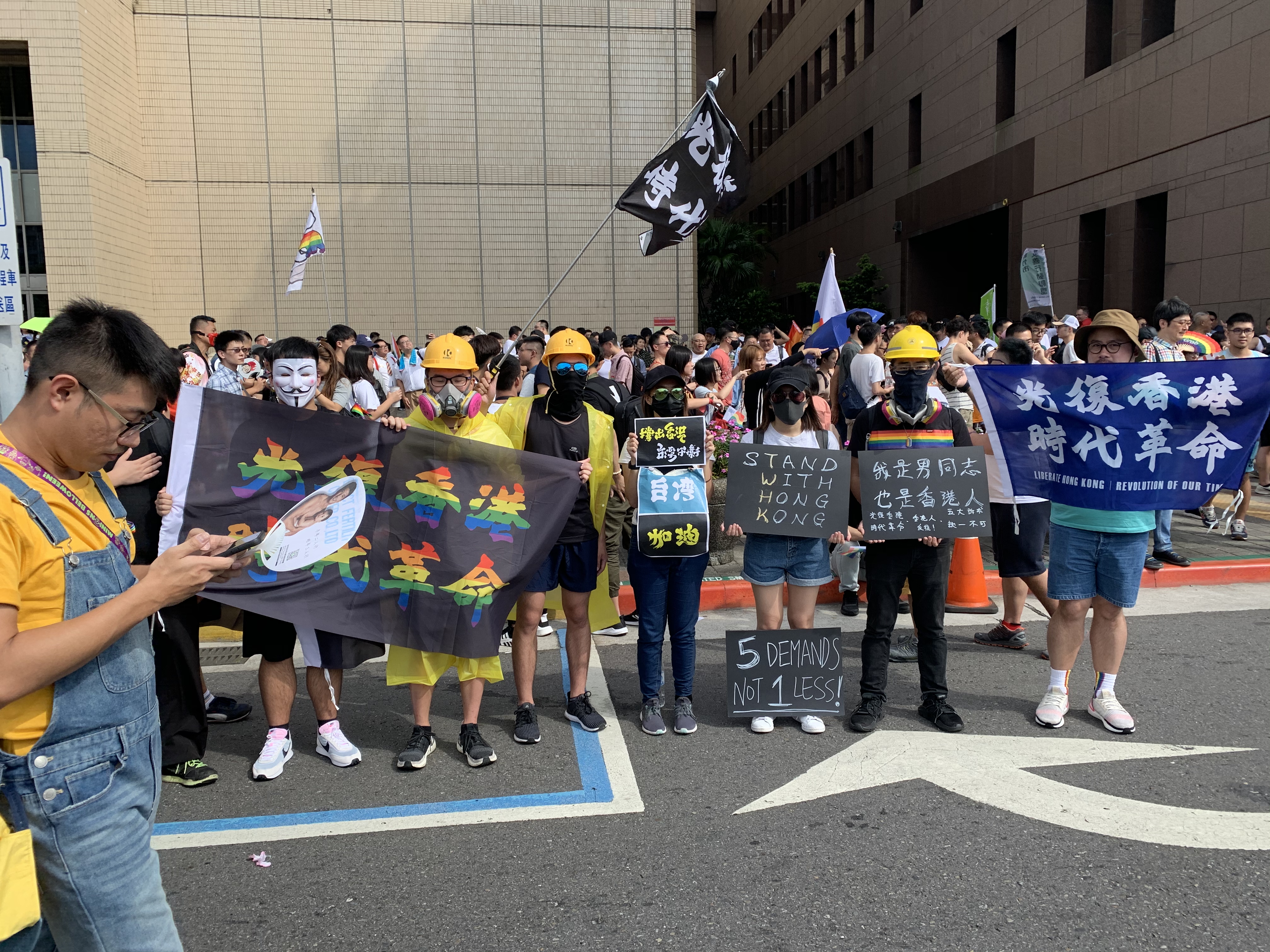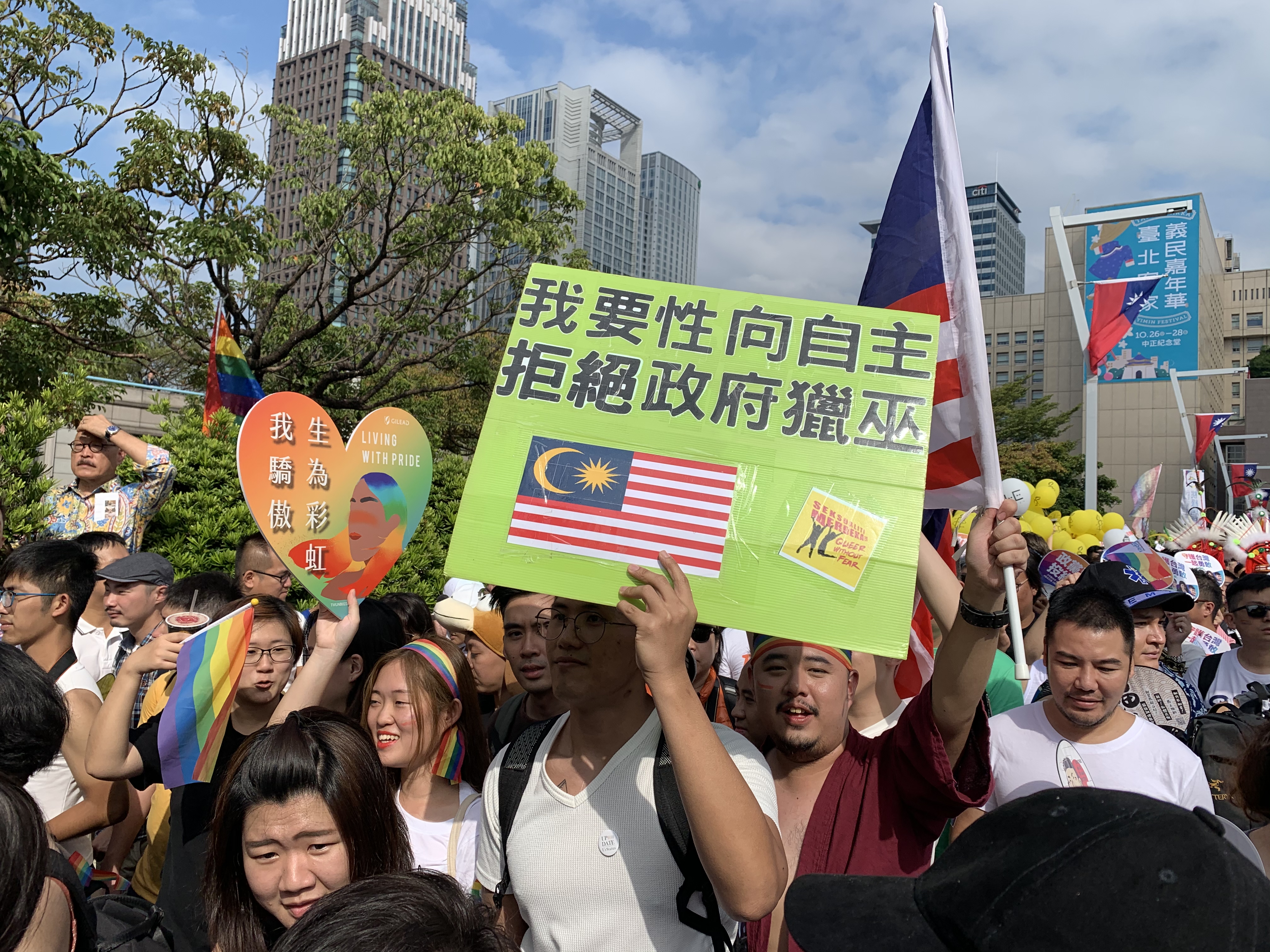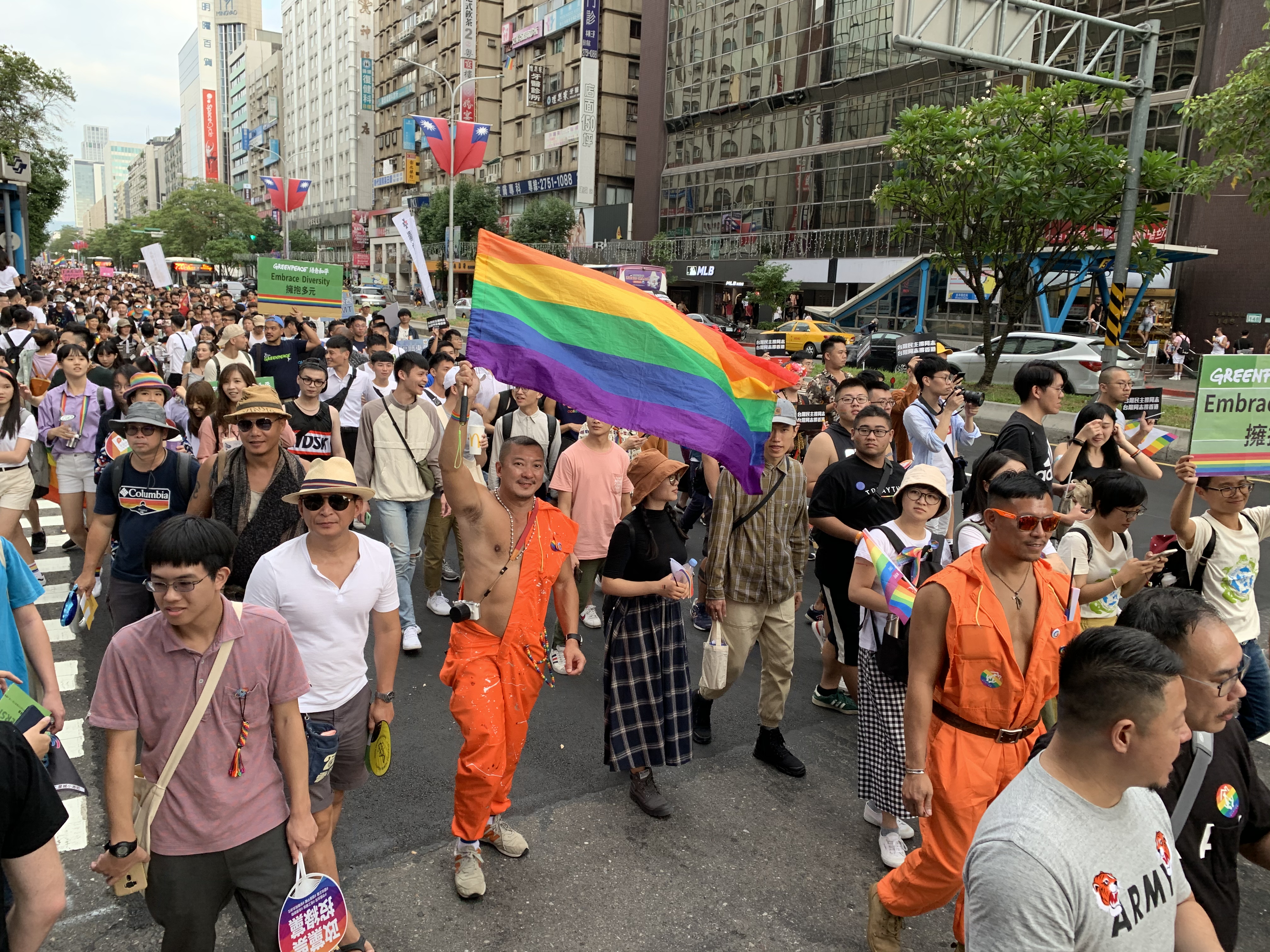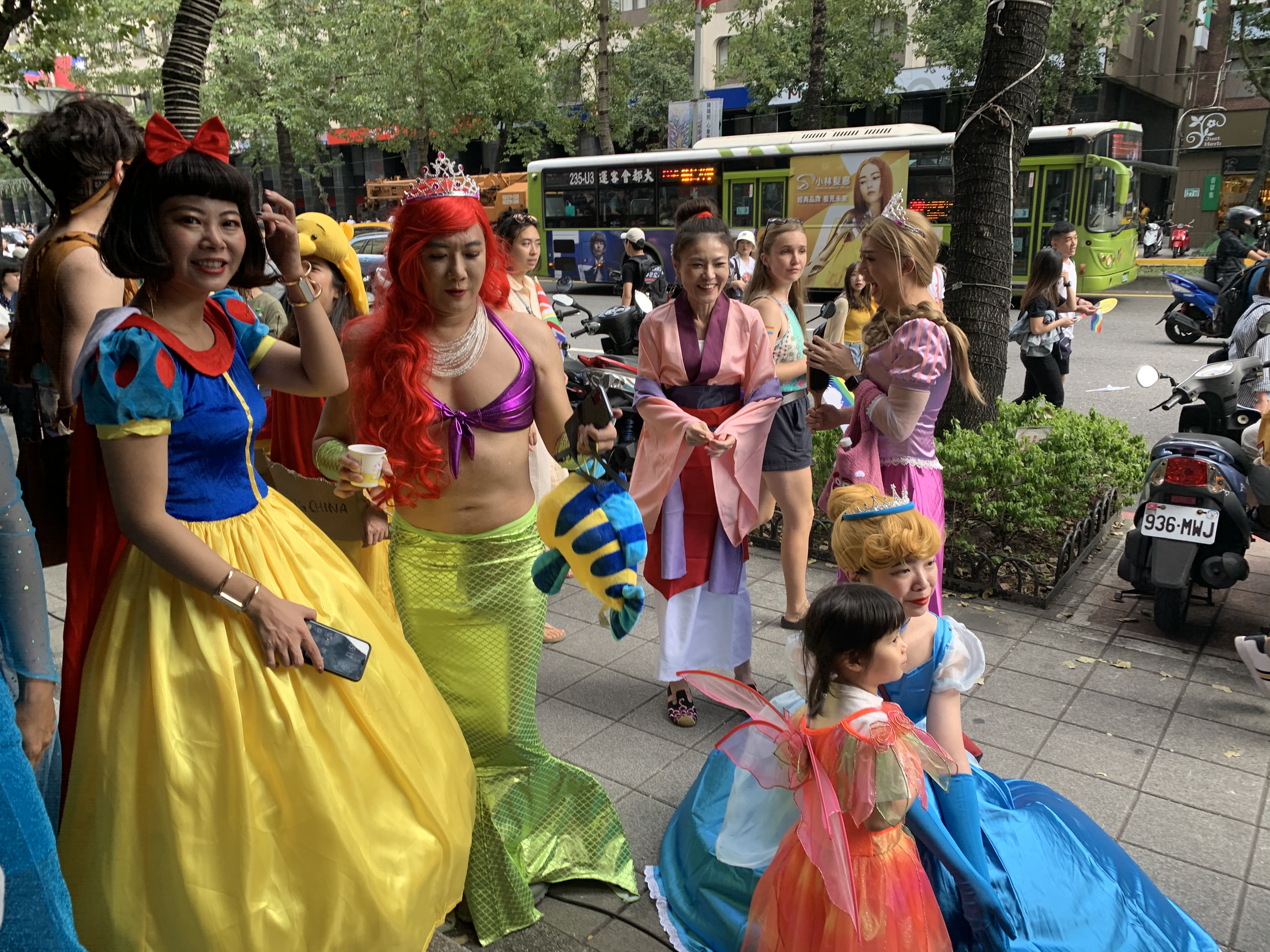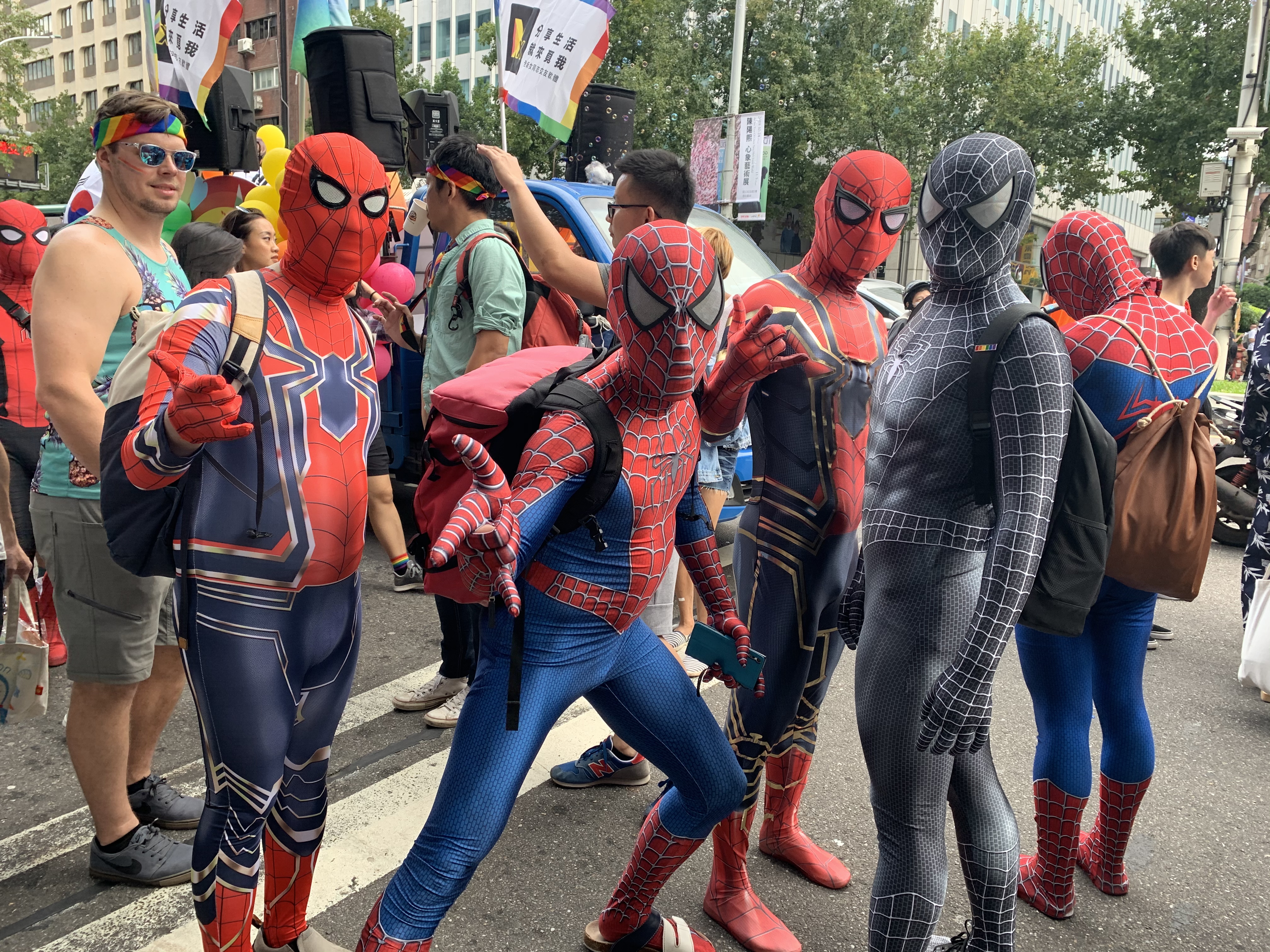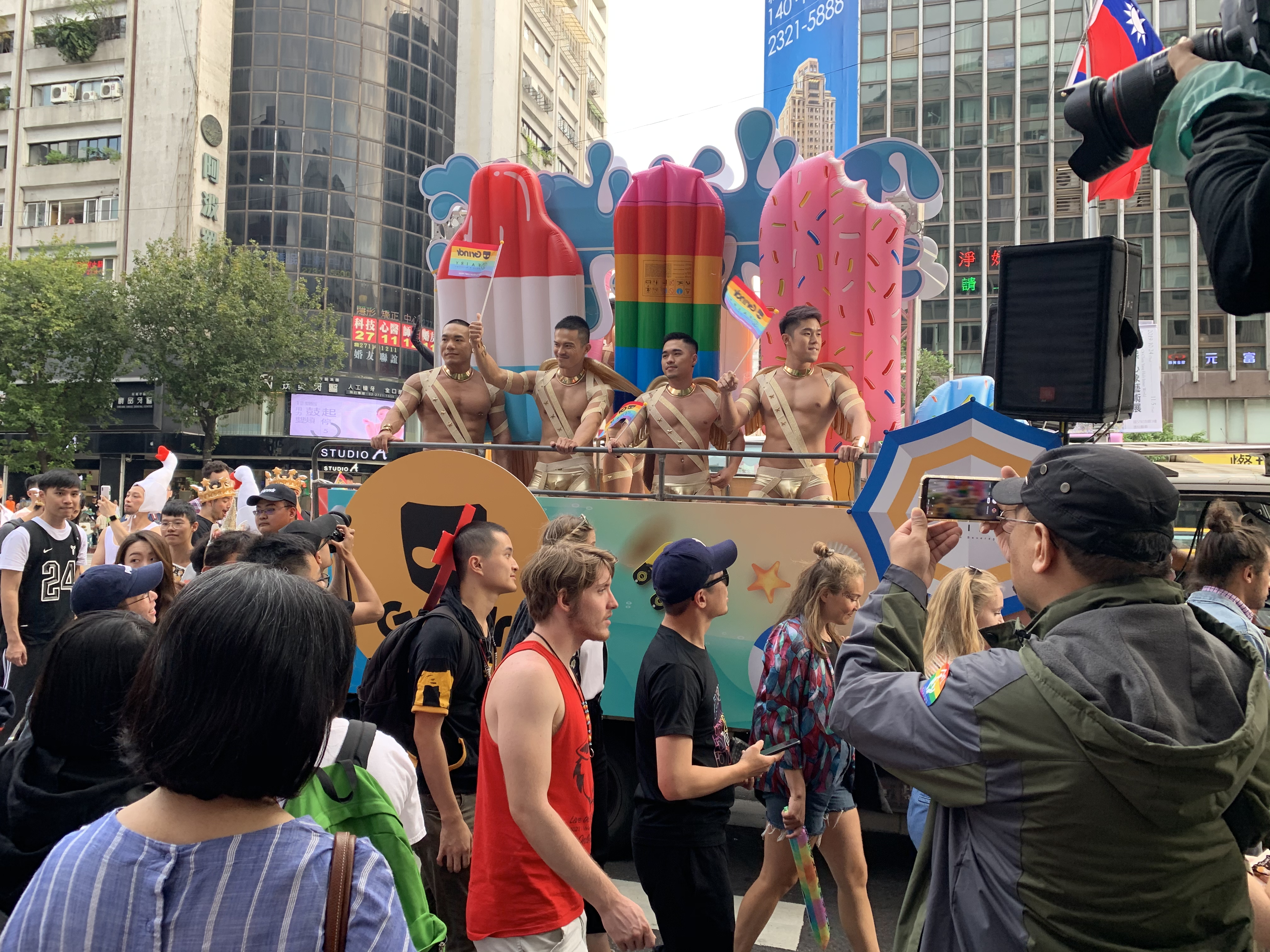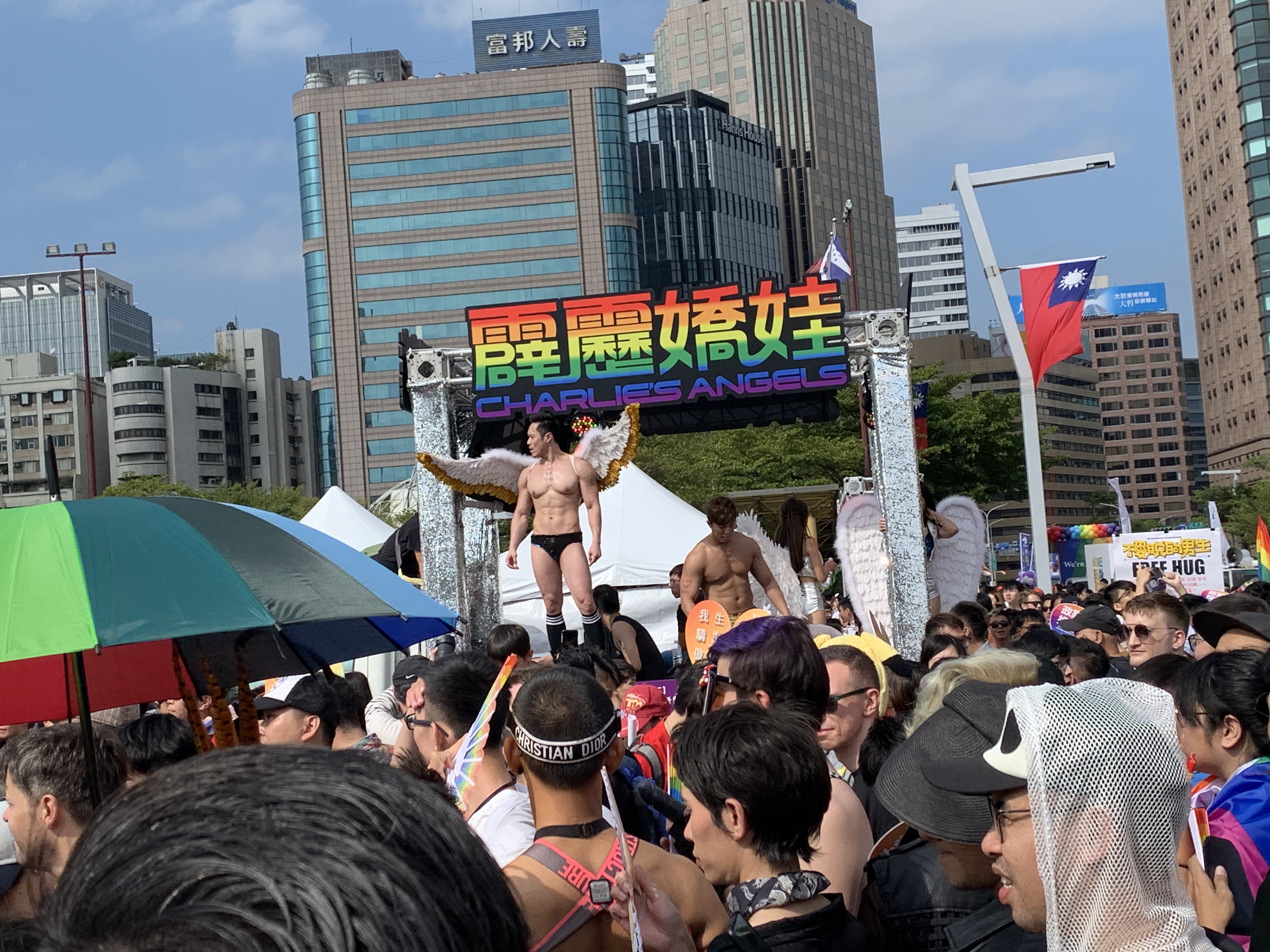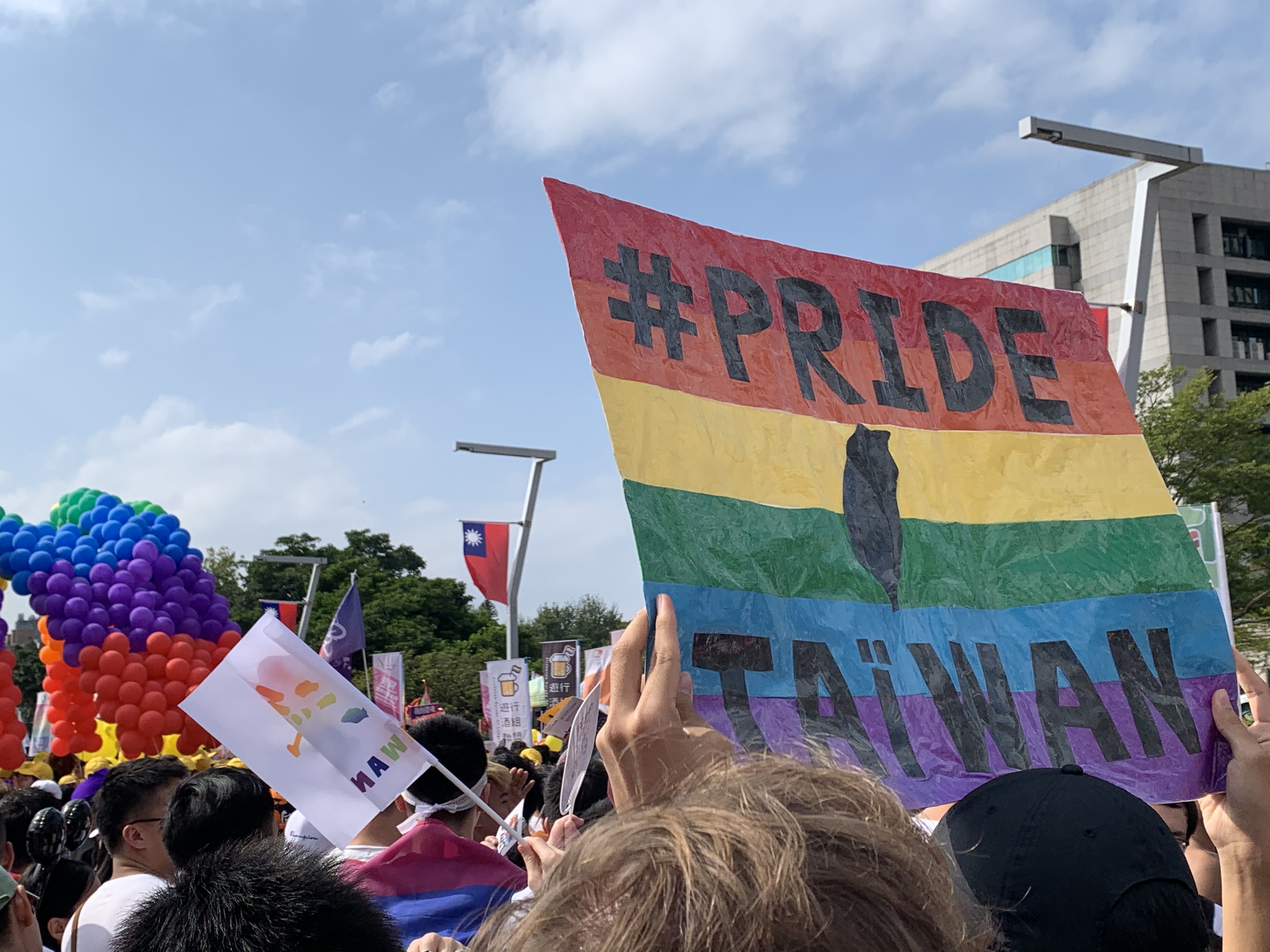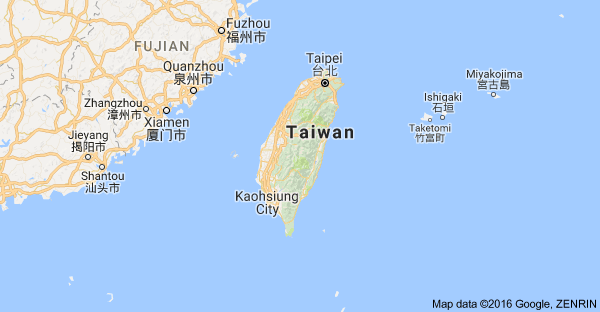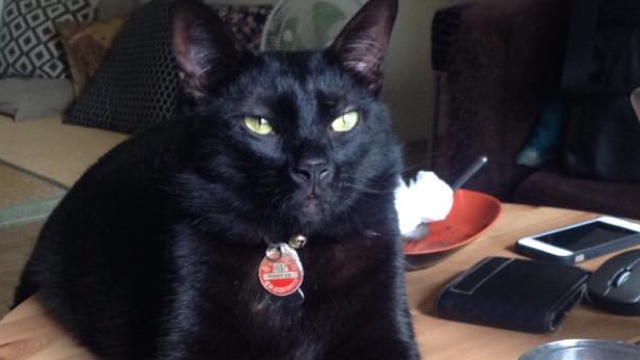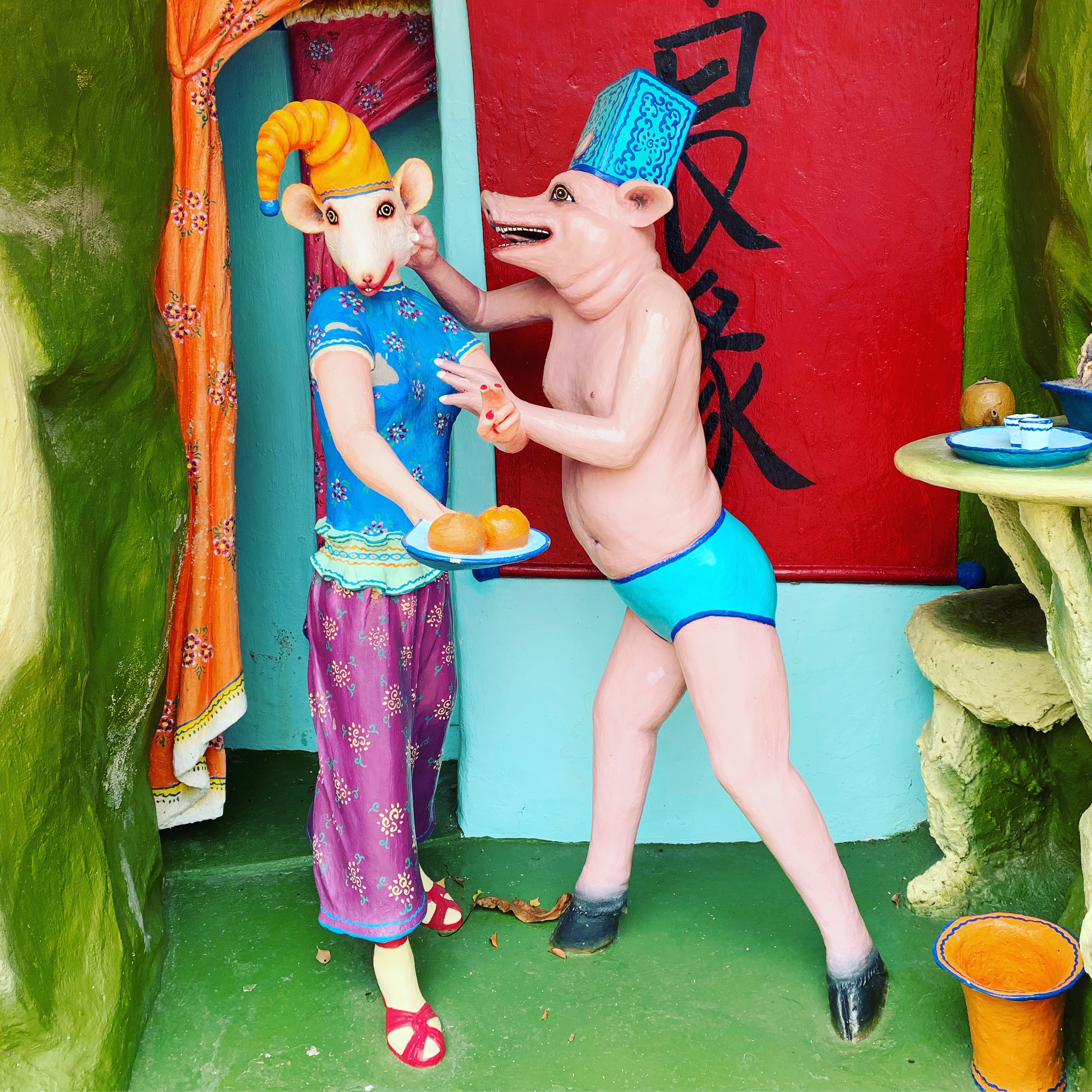 |
| Please enjoy this sculpture of a pig cavorting with a rat. You know why. |
So, there's a lot to talk about in politics this week. Everyone's talking about the anti-infiltration bill that was unveiled on Friday, so I guess we'll start there.
A few things pop out at me about this bill. First, the punishments for 'infiltration', which include using foreign sources or following foreign directives to donate to a political party, "influencing elections" (surely the bill is more detailed than that vague category) and other actions, are quite low. A fine which isn't that high considering the sums of money probably involved in actually attempting to interfere in Taiwanese democracy, or (not and) a prison sentence of "up to seven years".
As a few people have pointed out, it's a lot lower than the sentences for much more minor fraud and crimes that don't do nearly as much to undermine Taiwan's democratic system. For example, if you have a meth lab in your apartment or sell weed on the side, in theory you could be sent to jail for a minimum of seven years, and (not or!) a fine of up to twenty million NT dollars. Possession carries prison sentences that vary, but may go up to ten years and include a fine - more than you'd get for trying to implode democracy! Apparently smoking a little weed is worse than trying to up-end an entire political system.
This is a good time to refresh everyone's memory that the punishments for espionage - a somewhat-related but fundamentally different, and more serious, crime - are also quite low, though they were strengthened in 2019 in response to a string of espionage cases. In the past, civil servants (including career military) convicted of espionage would be removed from their post, but did not necessarily lose their government pensions or have to pay back any pension money they'd already received (that has since changed). Even now, a minimum sentence of 7 years seems light, seeing as it's about the same as the sentence for transporting or selling drugs. Security, training and background checking don't seem to have improved much, though.
As for why Taiwan hasn't upped its game, and is even now falling short, it's all politics. Back when it had power, the KMT didn't want to do much about it because the people doing the infiltrating (or the spying) were doing so within KMT-loyal organizations, such as the military or, in the case of infiltration, KMT-friendly media outlets and political organizations. Of course even now they don't want to admit there's a problem with some media outlets in Taiwan, with proof of foreign influence that goes well beyond the recent allegations of self-proclaimed spy 'Wang Liqiang' - those outlets are working hard to get them back into power, why would they want to hinder their ability to do so?
So why is the DPP's bill so weak on punishments? It was inevitable that the KMT would paint the push to pass an anti-infiltration bill as mere spectacle, a political move to "manipulate the 2020 elections", and it seems to me that the DPP wants to get something done, while trying to signal that they're not using the bill as a political tool.
I'm not sure it was a good decision, though. To me, the bill just looks weak.
At the same time, the KMT proposed their own tricky-sticky "anti-annexation" bill. To quote the Taipei Times:
At a news conference at the Legislative Yuan, the KMT caucus — which had unanimously boycotted the legislative meeting — unveiled a bill against annexing the Republic of China (ROC), which it said was meant to replace the anti-infiltration bill....
The anti-annexation bill says that no civil servant of the ROC may advocate actions that would sabotage the nation’s political system, or change its official title or territory.
They must not make remarks that advocate decimating, absorbing or replacing the ROC, the bill states.
Civil servants — including the president — found to have contravened the bill would face a prison term of up to seven years, it states.
The anti-annexation bill is a more comprehensive bill than the DPP’s, as it would not only bar attempts to unify Taiwan with China, but would also prohibit attempts to make Taiwan a US state or part of Japan, as these are all actions that would eliminate the ROC, KMT Legislator Lin Wei-chou (林為洲) said.
I don't know much about this bill because it's probably not going anywhere, but from what it says here, it's an attempt to shoehorn in legislation that would make it much harder for a pro-independence government to actually do anything about the ROC colonial government construct, or even say anything to that effect. In theory, even statements President Tsai and other DPP members have made in the past, for example, "the Taiwan Consensus", or "Taiwan is a country where..." could, in theory, be violations of this proposed law. It would limit freedom of expression by putting a muzzle on anyone in power to even discuss Taiwanese independence or a unique Taiwanese identity outside of a Chinese (that is, ROC) framework.
Of course, their own rhetoric about the 1992 Consensus, which positions Taiwan's fate as ultimately Chinese, would be entirely permissible under such a law. Since active KMT civil servants never come out and actually say they support unification (even though they often do), it wouldn't be hard for them to avoid violations. All they have to do is insist that by "China" and "One China" that they mean "the ROC" or "the 1992 Consensus", not "unification" while undermining any attempt to take a road that doesn't lead to unification, right up until they've sold Taiwan piece-by-piece to China and annexation becomes inevitable.
And they're doing it to look as though they are trying to pass a more 'neutral' and 'comprehensive' legislation, while attempting to dodge accusations that they as a party are implicated in Chinese infiltration (the same reason why they won't vote against the DPP bill - they know whose faces that egg is on). They are failing on both counts, but will surely have supporters who insist otherwise. Expect all those Chinese-influenced media outlets to parrot the idea that the DPP's bill is "Green Terror" and tout the reasonability of the KMT one.
This has made me go back to the apparently bipartisan strengthening of anti-espionage legislation earlier in 2019 (Asia Times being the only outlet that called it bipartisan, and I'm not sure how much to trust them), after years of the KMT doing very little about it. If your party is in bed with China both in terms of spies and other forms of infiltration - just different ways of playing for the other team - why would you help pass, or at least allow to pass without comment, an anti-espionage amendment that you were once so loath to do much about, earlier in the same year? Especially when this more recent bill carries fairly weak punishments?
Is it election politics? Or is it that the KMT knows it's far more directly implicated in the latter issue than the former? Is it because they're aware that every single media outlet that is caught up in this scandal is one that supports their candidate?
If the KMT themselves were innocent, and the media outlets involved not necessarily geared towards helping a particular party get elected, wouldn't they just support this fairly mild bill as they did the anti-espionage bill?
Makes ya think.
Actually, no it doesn't. The answer is pretty obvious.

